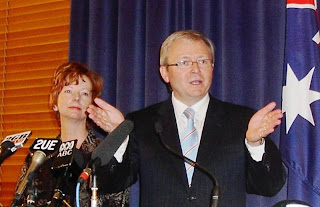Over the last couple of months
there has been increasing tensions in the East China Sea
between China , Japan ,
South Korea and
the United States ,
along with other countries in the region. The main issues are the growing rise
of China as the
new top dog in the region and a long standing dispute over a group of islands
called Senkaku/Diaoyu which belong to Japan ,
but are claimed by a handful of other countries including China .
Although the current crisis is over a tiny group of uninhabited islands that
lay on top of gas and oil deposits, the main issue of concern not just to the region but also the international community is
the rising power of China, who are on a campaign to flex its military and
economic muscle.
The most recent example of China’s military and diplomatic flexing has been in the last few months, when they installed a Air Defence Identification Zone (ADIZ) over the disputed islands, and which overlaps Japan’s own ADIZ. This action by China
requires all commercial and military aircraft to identify themselves with
Chinese authorities when passing through this zone, but the US ,
Japan and other countries have rejected these requests and have conducted military flights in the area. Not
much has been mentioned in recent weeks concerning the ADZ, and no reports of
incidents over the matter.
Apart from the ADZ issue, the US
and China navy ships have come close to colliding with each other in the South
China Sea, near another group of disputed islands. Both countries have released
statements blaming the other for the near miss, with the US saying that the Chinese ship was being aggressive towards their vessel which was in international water and the Chinese stating that the US ship was harassing the new Chinese aircraft carrier, as it was carrying out exercises.
On the matter of the dispute in the East China Sea, my understanding is that the
Senkaku islands are a sovereign territory
of Japan Japan .
Except no international organisation or country wants to deliberate on
sovereignty rights, so this issue will drag on into the future.
The US
has been dragged into the crisis, though quite willingly on the side of Japan ,
as they are allies, and also they want to keep a check on China ’s
new aggressive stance in the region. The US since the end of the second world
war have been the main military force protecting its own national interests and
its allies in the region, but since the rising economic and military power of
China over the last couple of decades, the US has seen its status as the
regions and even the worlds only superpower decline. China at the present
acknowledge this change in the status que and have been taking advantage of a
weaker US role in Asia and the rest of the world, but continuing in a
campaign of provocative action against its neighbors will
not advance stability in the region or win international support.
















